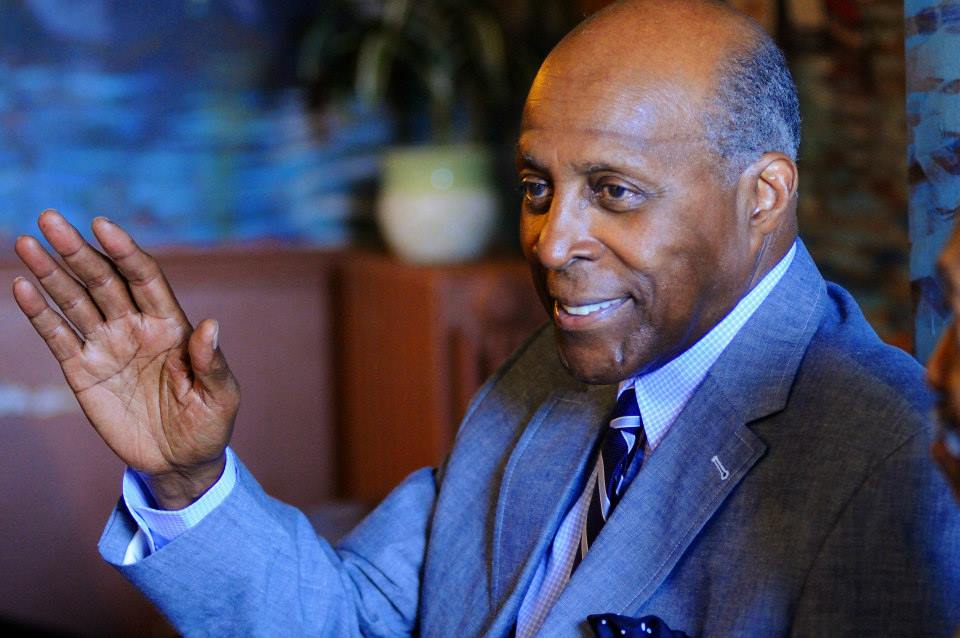Vernon Jordan Services Online Tuesday:
Afterward, a Look Back at Gwen Ifill’s Interview
‘We Need Business Models That Support Quality Journalism’
Photos by Jason Miccolo Johnson
Support Journal-isms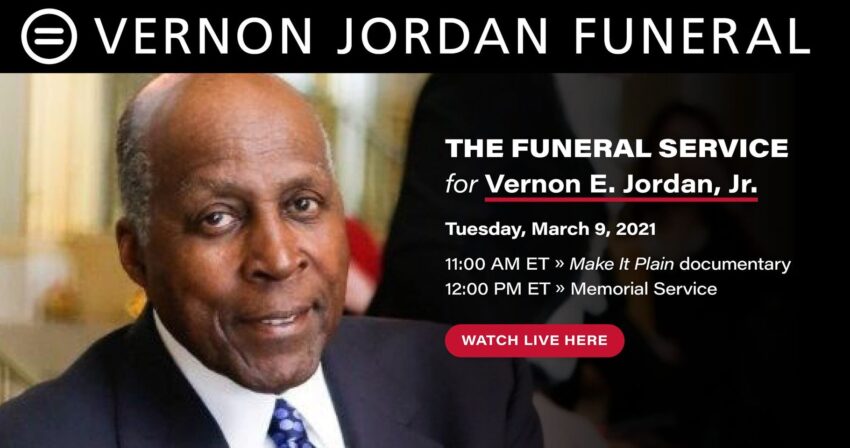
Afterward, a Look Back at Gwen Ifill’s Interview
- Associated Press/PBS update: Civil rights leader Vernon Jordan remembered at memorial service
A streamed memorial service for Vernon E. Jordan Jr. takes place Tuesday at noon, the National Urban League announced late Monday, augmented by the showing of a documentary and a televised special on the civil rights leader and Washington power broker.
Jordan died March 1 at his home in Washington. He was 85 and the Urban League’s executive director from 1971 to 1981.
The stream may be viewed at www.whut.org/VernonJordan.
The schedule:
11 a.m. – noon: “Vernon Jordan: Make It Plain” documentary
Noon – 1:30 p.m.: Memorial Service
1:30 p.m. – 2:30 p.m: “An Evening with Vernon Jordan “ (2014) (One-hour special Immediately following the service)
Speakers are:
Rev. Dr. Bernard L. Richardson
Dean of Andrew Rankin Memorial Chapel
Howard University
Dr. Wayne Frederick
President, Howard University
Rev. William H. Lamar IV
Metropolitan AME Church, Washington, DC
Rev. Otis Moss, Jr
Pastor Emeritus, Olivet Institutional Baptist Church
Vickee Jordan Adams
Daughter
Kenneth I. Chenault
Chairman & Managing Director General Catalyst
Former Chairman & CEO American Express
Kim Koopersmith
Chairperson, Akin Gump Strauss Hauer & Feld LLP
Ursula Burns
Former Chairman and CEO Xerox Corp.
Marc H. Morial
President and CEO National Urban League
The Honorable William Jefferson Clinton
42nd President of the United States
First Friend
“An Evening with Vernon Jordan is a one-on-one interview of Vernon Jordan, one of the most iconic civic and business leaders of today,” WHUT-TV, the Howard University television station, announced. “Taped in front of a live audience at the New York Times Center in New York City and hosted by veteran PBS-TV journalist, Gwen Ifill, An Evening with Vernon Jordan begins with a moving musical photo tribute to Vernon Jordan sung by tenor Rodrick Dixon.” (also viewable here.)
- Jonathan Capehart, Washington Post: Vernon E. Jordan Jr. cleared a path for African Americans to follow in his elegant footsteps
- Brian Dowd, Martha’s Vineyard Times: Vernon Jordan dies at 85: Seasonal Chilmark resident was active on the Island.
- Michael Fletcher, The Undefeated: Vernon Jordan was a wise man in a town where almost every other wise man was white
- Robin Givhan, Washington Post: Vernon Jordan made being a Black man in America look effortless
- Joint Center for Political and Economic Studies: Mourning the Passing of Joint Center Co-Founder Vernon Jordan
- Peggy Noonan, Wall Street Journal: America Loses a Wise Man: Vernon Jordan knew how to savor his life — and was truly committed to reaching across the aisle.
- Clarence Page, Chicago Tribune: Remembering Vernon Jordan, a different kind of civil rights leader
- Roxanne Roberts, Washington Post: How Vernon Jordan became a one-of-a-kind Washington presence
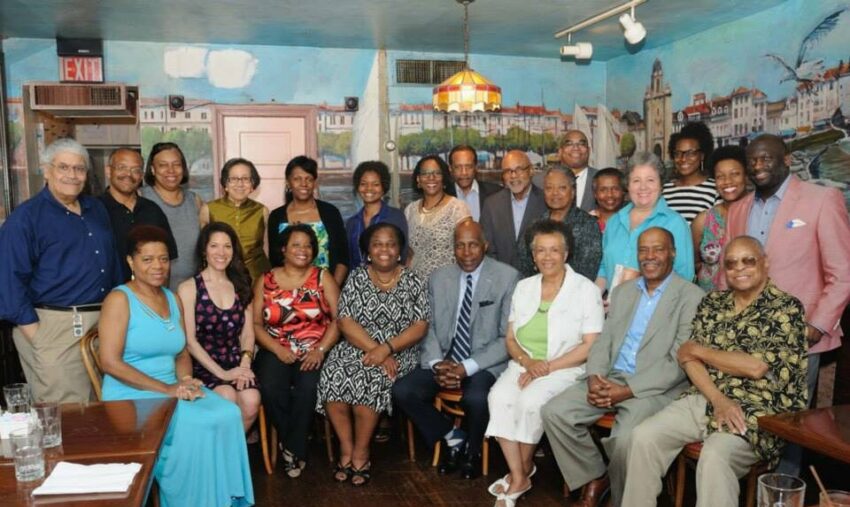
‘We Need Business Models That Support Quality Journalism’
On Nov. 3, 2016, The Wall Street Journal ran an adaptation of a speech made by Vernon E. Jordan Jr. that week in New York.
“The technology, media and telecom industry has had an unprecedented impact on this election. I think everyone — Democrat, Republican or independent — can agree that this year’s Republican nominee could never have gotten this far without the ascendancy of new media and the decline of the old.
“Donald Trump bypassed the old media gatekeepers, the so-called “media elite,” and took his message straight to the electorate, using Twitter. Partisan websites and bloggers amplified his message. Mainstream television, under pressure from new media, gave the candidate abundant free airtime, because his behavior was good for ratings.
“This election may be remembered as the first where the relentless march of technology, having transformed the media landscape, began to disrupt our political process. Now, some would say our political process needs disrupting—and they may have a point.
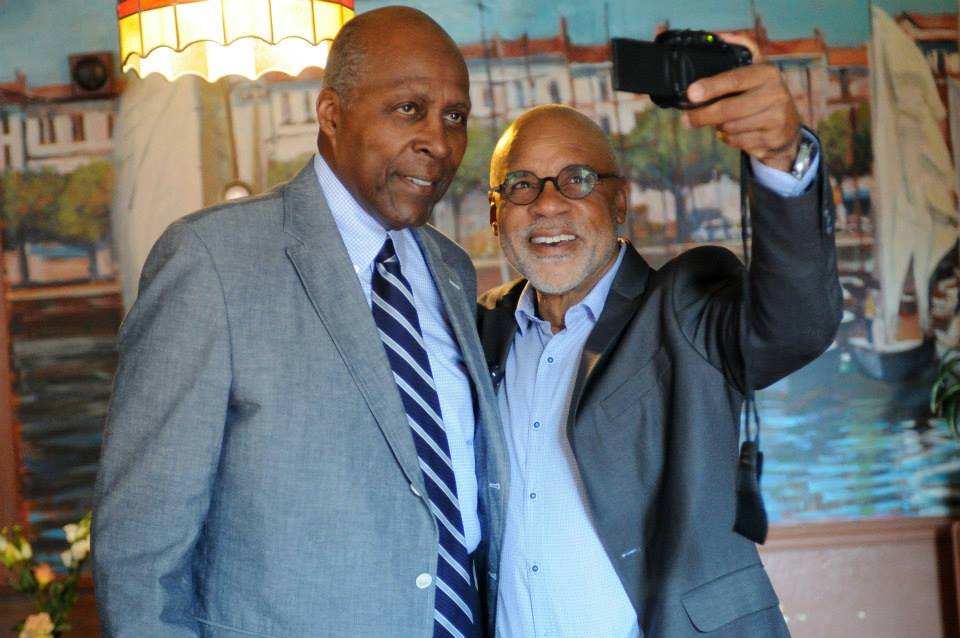 “The technology itself is nonpartisan. The same social media that fueled the Republican candidate gave voice to Black Lives Matter. Technology is a great gift to mankind. But it is a gift.
“The technology itself is nonpartisan. The same social media that fueled the Republican candidate gave voice to Black Lives Matter. Technology is a great gift to mankind. But it is a gift.
“Now, just days before a presidential election that would have been unimaginable four years ago, it is time for us to pause and consider: What have we wrought?
“For better or worse, technology has destroyed the business model of traditional journalism. The great new institutions of the 20th century, print newspapers, the evening broadcast news, the trusted anchorman, are fading relics. In their place we have unlimited information, unfiltered, all the time. In this year’s presidential campaign, we are witnessing what happens when longstanding public institutions are dismantled without a plan for what follows.
“In the new media landscape, the wall between news and entertainment is crumbling. The value of news is measured by its popularity. The loudest voice gets the most listeners. A lie bears equal weight as a fact.
“By giving everyone a voice, and every voice unlimited reach, we have opened our national dialogue to bullies, bigots and buffoons—on both sides of the aisle. . . .”
Meghan and Harry Touch Nerves on Racism
March 8, 2021
Contributing Factor: Lack of Diversity in Tabloids
Trial Begins in Killing of George Floyd
Should We Give a Pass to Posing as Latina?
Bucking Trend, Philly Inquirer Seeks Opinion Writer
Protests ‘Most Dangerous Place’ for Journalists
Globally, Journalists Targeted at Record Levels
ABC News Names New Deputy Political Director
Prince Harry and Meghan Markle, the duke and duchess of Sussex, speak with Oprah Winfrey for a two-hour primetime special, “Oprah with Meghan and Harry” that aired on CBS Sunday. (Credit: Joe Pugliese/Harpo Productions/CBS)
Contributing Factor: Lack of Diversity in Tabloids
Oprah Winfrey won kudos for her highly anticipated interview Sunday with Prince Harry and Meghan Markle, and Meghan’s accusations of racism within the British Royal family resonated with women of color, including journalists, who were interviewed and who posted on social media.
The kudos began during the interview, and CNN weighed in Monday with an analysis that might sound familiar.
“Critics say that the media’s treatment of Meghan, which contrasts starkly with the often positive coverage given to her sister-in-law Kate Middleton, the Duchess of Cambridge, is at least partly explained by a lack of newsroom diversity,” Hanna Ziady wrote from London.
Ziady began, “When British newspapers first broke the news of Prince Harry’s relationship with Meghan, the Duchess of Sussex, one Mail Online headline declared that she was ‘(almost) straight outta Compton.’ Around the same time, The Daily Star ran a headline asking whether Harry would ‘marry into gangster royalty?'”
Winfrey was credited with providing the right atmosphere for the couple to discuss the racism they encountered.
The program reached an estimated 17.1 million viewers in the United States, the largest audience for any prime-time entertainment special so far this television season, according to the Nielsen Co., the Associated Press reported.
Social media provided a running account during the two-hour interview.
James Poniewozik, television critic for The New York Times, tweeted, “After all these years, it’s still stunning how Oprah uses her position of being the one person in the world who can ask anyone anything. There’s really no one with that same cultural status. It’s like a superpower.”
Jemele Hill, outspoken contributing writer for The Atlantic, tweeted, “It was hard not to watch #HarryandMeghanonOprah and not feel so much empathy for Meghan Markle. So many women of color can relate to the exhausting experience of having your worth and existence constantly questioned and scrutinized.”
Her interview skill set is at peak and epic proportions. That was a master class. #HarryandMeghanonOprah https://t.co/uQCtTtN9Q5
— Ava DuVernay (@ava) March 8, 2021
The BBC quoted a political and women’s rights activist who “told BBC Breakfast that many white people will watch Harry and Meghan’s interview and ‘will not see the root cause as racism’.
“Dr Shola Mos-Shogbamimu says people want to deny that the Royal Family as an institution is rooted in colonialism, racism and white supremacy.”
And tennis star Serena Williams wrote on Instagram, “I know first hand the sexism and racism institutions and the media use to vilify women and people of color to minimize us, to break us down and demonize us. The mental health consequences of systemic oppression and victimization are devastating, isolating and all too often lethal,” the Associated Press reported.
As Marc Landler reported for The New York Times, “A year after Meghan Markle married Prince Harry in a fairy-tale wedding, she said in an extraordinary interview broadcast on Sunday night, her life as a member of the British royal family had become so emotionally desolate that she contemplated suicide.
“At another point, members of the family told Harry and Meghan, a biracial former actress from the United States, that they did not want the couple’s unborn child, Archie, to be a prince or princess, and expressed concerns about how dark the color of the baby’s skin would be.
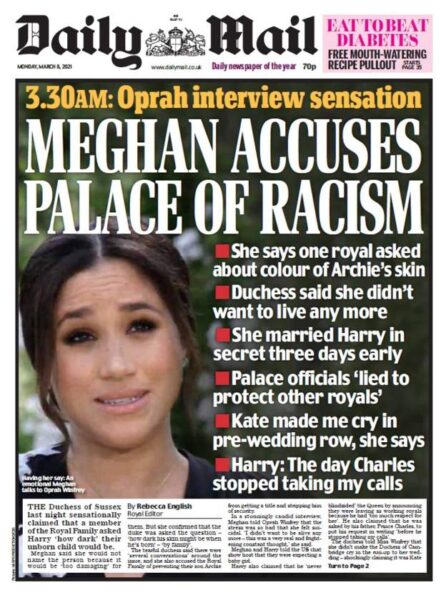
“An emotional but self-possessed Meghan said of her suicidal thoughts: ‘I was ashamed to have to admit it to Harry. I knew that if I didn’t say it, I would do it. I just didn’t want to be alive anymore.’
“Meghan, 39, made the disclosures in an eagerly anticipated, at times incendiary, interview on CBS with Oprah Winfrey that aired in the United States in prime time. In describing a royal life that began as a fairy tale but quickly turned suffocating and cruel, Meghan’s blunt answers raised the combustible issues of race and privilege in the most rarefied echelon of British society. . . .
“Meghan’s reference to concerns about her child’s skin tone provoked a stunned ‘what?’ from Ms. Winfrey. . . .”
Meredith Blake added for the Los Angeles Times:
“ ‘They were concerned that if he were too brown, that that would be a problem?’ Winfrey asked.
“ ‘If that’s the assumption you’re making,’ said Meghan, ‘I think that’s a pretty safe one.’
‘You want to deny the Royal Family has any racist undertones or actions simply because you’re in love with the Queen?’
‘What a load of race-baiting nonsense.’
The debate gets very heated between @piersmorgan and @SholaMos1. pic.twitter.com/6XaH6RrDlV
— Good Morning Britain (@GMB) March 8, 2021
“Meghan expressed disappointment in how she was treated as a woman of color in the royal family, particularly after she toured a number of Commonwealth countries and met many young women of color like her and realized ‘how much it meant to them to be able to see someone who looks like them in this position,’ she said. ‘I could never understand how it wouldn’t be seen as an added benefit and a reflection of the world today.’ ”
Teen Vogue, which announced last week that its next editor would be Axios political reporter Alexi McCammond, has been noted for its embrace of national news and social justice coverage. It ran a piece by Stitch, described as a “pop culture and fandom writer.”
Stitch wrote that “nothing about this is new or shocking to Black women anywhere, especially in Britain where misogynoir is a major problem.
“This behavior — escalating harassment, people accusing us of being bullies when we’re firm, lies that blame us for harm done against other people — is part of the online troll ecosystem’s historical approach to Black women with even a single ounce of power or visibility. What’s happening to Meghan Markle is targeted racist harassment and trolling that uses misogynoir to try and shape public perception of Black women.
“We’ve seen this before. . . .”
Some in Britain were critical of Harry and Meghan. Piers Morgan, talk-show host who led a prime-time program on CNN from 2011 to 2014, said, “What was Prince Harry thinking? I know you ditched your country, Harry. You ditched us.”
However, his comments were met with their own backlash.
Charles Anson, the queen’s press secretary between 1990 and 1997, told the BBC, there is “no strand of racism within the Royal household.“
- Joe Flint and Suzanne Vranica, Wall Street Journal: Meghan Markle and Prince Harry Interview With Oprah Fetches at Least $7 Million From CBS (paywall)
- Renee Graham, Boston Globe: Meghan Markle was never allowed to fit into the royal family
- Earl Ofari Hutchinson, Hutchinson Report: Surely the Duchess of Sussex Couldn’t be Surprised She’d Always be a Target
- Ben Quinn and Caroline Davies, the Guardian: Mail on Sunday must publish front-page Meghan statement, court rules
- Reuters: Black Britons Empathize With Meghan After TV Interview (video) (March 8)
Angela Davis, host at Minnesota Public Radio, and deputy managing editor Nancy Lebens explain how the station plans to cover the Derek Chauvin trial. (video)
Trial Begins in Killing of George Floyd
“There’s never been a trial of this magnitude before in these parts,” Ruben Rosario wrote Saturday for the Pioneer Press in St. Paul, Minn. “I’m talking here about the upcoming prosecution of former Minneapolis police officer Derek Chauvin.
“Unprecedented. Historic. Momentous. Pick an adjective. Minnesota, if not the nation, has never seen a higher profile police-involved death case cojoined by the socially seismic events that transpired following the May 25, 2020, death of George Floyd.
“It is, as national trial consultant expert Jeffrey Frederick aptly describes it, ‘the trial of the century for this community.’ ” continued Rosario, who retired last year but has continued to write occasional columns, according to Editor Mike Burbach.
“What happened to Floyd, a Black man who died after he was confronted and subdued by four police officers for allegedly trying to pass off a $20 counterfeit bill at a South Minneapolis bodega, sparked a global wave of protests, civic unrest, and ongoing calls for substantive legislative and policy reforms in policing.”
Alex Perez, Andy Fies, and Whitney Lloyd wrote Monday for ABC News, “Legal professionals who have followed the pre-trial filings and maneuverings say that even with that stunning and difficult-to-watch visual evidence, the case against Chauvin is anything but a slam dunk. . . .”
Minnesota Public Radio prepared a segment March 1 designed to answer, “How will journalists decide what to focus on in the upcoming trial of former Minneapolis police officer Derek Chauvin?” and “How did they cope with the emotional toll of reporting on the killing of George Floyd and the civil unrest that followed?” Responding were MPR News host Angela Davis and deputy managing editor Nancy Lebens.
“We’re really trying to be a bridge for this region,” Duchesne Drew, president of Minnesota Public Radio, told Journal-isms. “And deepening trust is critical.”
- Tim Arango and Nicholas Bogel-Burroughs, New York Times: Derek Chauvin Trial May Be Delayed Over Court Ruling on Third-Degree Murder
- Marcus Hunter II, Star Tribune, Minneapolis: I live in a cemetery called north Minneapolis
- David P. Hutchinson, Hennepin County sheriff, Star Tribune, Minneapolis: During trial, free speech, public safety will both be protected
- A.J. Katz, TVNewser: NBCU’s Peacock Adds Law&Crime Network In Advance of George Floyd Murder Trial
- Katrina Pross, Pioneer Press, St. Paul, Minn.: What you need to know as Chauvin trial starts this week
- Mel Reeves, Minnesota Spokesman-Recorder: Fortress Minneapolis: City ‘violence baits’ community ahead of Chauvin trial
- Minnesota PRSA: Covering the Chauvin Trial: The Roles of Journalists, PR and Communications Professionals (March 19 webinar)
- Robin Washington and Iain Carlos, “Simply Superior,” Wisconsin Public Radio: As the country focuses on the murder trial of now-former Minneapolis Police Officer Derek Chauvin for the death of George Floyd, host Robin Washington takes an in-depth look at the financial crimes he’s also charged with
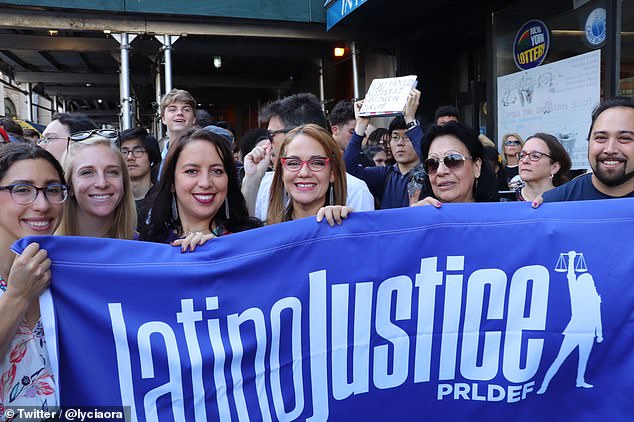
Should We Give a Pass to Posing as Latina?
“In recent years, multiple instances of people presenting false ethnic or racial identities have come to light,” Raul A. Reyes wrote Feb. 28 for NBC Latino.
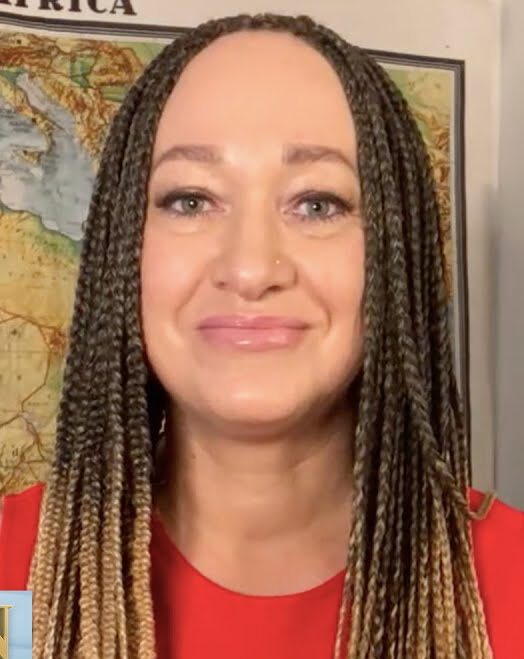 “In 2015, Rachel Dolezal (pictured) drew national attention after it was revealed that she had posed for years as an African American woman. In 2020, the scholar Jessica Krug resigned from George Washington University after confessing that she had falsely passed as Black.
“In 2015, Rachel Dolezal (pictured) drew national attention after it was revealed that she had posed for years as an African American woman. In 2020, the scholar Jessica Krug resigned from George Washington University after confessing that she had falsely passed as Black.
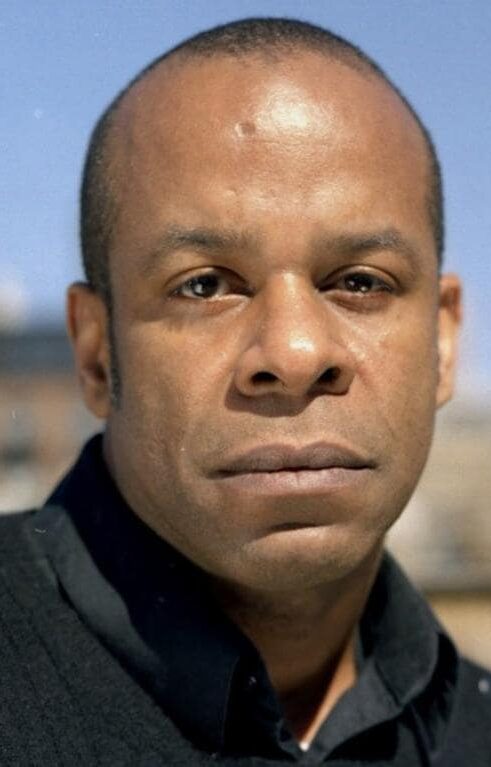 “The same year, the novelist H.G. Carrillo (pictured), whose fiction explored Cuban American identity, was posthumously revealed (by family members) to be an African American man named Herman Carroll. An assistant professor at Furman University in South Carolina resigned after allegations arose that she had falsely posed as Chicana.’
“The same year, the novelist H.G. Carrillo (pictured), whose fiction explored Cuban American identity, was posthumously revealed (by family members) to be an African American man named Herman Carroll. An assistant professor at Furman University in South Carolina resigned after allegations arose that she had falsely posed as Chicana.’
Now there is a new case — and at least two news organizations say there is little they can do to prevent others from cropping up. You are what you say you are, they tell Journal-isms.
“Claiming Hispanic, Latino or Latinx identity is a matter of personal choice,” Reyes wrote. “As the Pew Research Center said in a 2020 report: ‘Who is Hispanic? Anyone who says they are.‘
“But a recent controversy illustrates the tension between identifying as part of a group and being accused of appropriating an ethnic or racial community.
“Until January, Natasha Lycia Ora Bannan was known as a prominent Latina civil rights lawyer in New York City. She was active in social justice organizations and the recipient of prestigious honors. She was senior counsel at a leading Latino advocacy group, LatinoJustice PRLDEF, and president of the National Lawyers Guild.
“She contributed to anthologies of Latina writers and published articles on a Latino website, and in 2017, she appeared in a video for Voice Latina, saying she was a ‘cultural mix of Puerto Rican, Colombian, Italian and some other.’ Earlier, in a 2015 video, she mentioned dancing salsa while visiting family in Colombia.
“Then the online news site Prism alleged that Bannan was not Latina.
“According to Tina Vásquez, a senior reporter at Prism Reports, historical records showed that Bannan grew up in Georgia and was of Italian, Irish and Russian heritage. Vásquez’s story soon went viral. . . . it led to a lot of anger.’ . . .”
The New York Times and the Associated Press, in essence, accept the Pew Research Center’s rule of thumb, “Who is Hispanic? Anyone who says they are.”
Lauren Easton, spokesperson for the AP, messaged Journal-isms, “AP refrains from mentioning ethnicity unless relevant to the story and generally would accept someone’s self-attestation unless there is some reason to question or doubt it.”
Phil Corbett, standards editor at The New York Times, passed along these entries from the Times Style guide:
“ethnicity should be mentioned only when it is pertinent and its pertinence is clear to the reader. The ethnicity of a candidate is pertinent if she uses it to appeal for votes. The ethnicity of a person sought by the police may be an essential part of a physical description. But the ethnicity of a person convicted of a crime is not pertinent unless the case has ethnic overtones that are worth describing in the coverage.
“Latino (n. and adj.) is generally interchangeable with Hispanic, referring to people descended from a Spanish-speaking land or culture. The feminine form is Latina. When writing about specific people or groups, choose the term they prefer. . . .”
It’s understandable that the news media aren’t in the business of policing ethnicity. Even staff members have taken advantage of that.
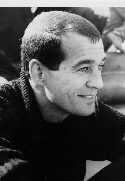 Anatole Broyard (pictured), daily book reviewer at the Times for more than a decade, is part of newspaper lore. He passed for white to escape the burden of race. His daughter, Bliss Broyard, wrote a book about him, “One Drop: My Father’s Hidden Life.”
Anatole Broyard (pictured), daily book reviewer at the Times for more than a decade, is part of newspaper lore. He passed for white to escape the burden of race. His daughter, Bliss Broyard, wrote a book about him, “One Drop: My Father’s Hidden Life.”
Since the allegations against Bannan became public, she has resigned from LatinoJustice PRLDEF, Reyes wrote.
“In a statement Jan. 9, the organization’s president and general counsel, Juan Cartagena, said: ‘We cannot accept actions that displace Latinos and Latinas, including within our own movement. … Ms. Bannan’s actions, regardless of intent, have caused harm not only to those who were displaced by her role in the movement but also to those who have been her allies and collaborators.’ “
- Sofia Quintero, Women’s Media Center: Latina Identity Thieves and their Enablers (Feb. 11)
Bucking Trend, Philly Inquirer Seeks Opinion Writer
As newspapers have shrunk in response to declining revenues, editorial page staffing has been among the hardest hit. But the Philadelphia Inquirer is actually hiring an opinion writer, following a hard-nosed outside audit of the diversity of its newsroom.
The Inquirer reported Feb. 12, “The audit, commissioned by The Inquirer and conducted by researchers at Temple University, found that out of 14,000 people featured in a sample of 3,000 articles, photos, and videos between August 2019 and July 2020, about a quarter were Black, 3% were Latinx, and less than 2% were Asian. Representation of Indigenous people was negligible.”
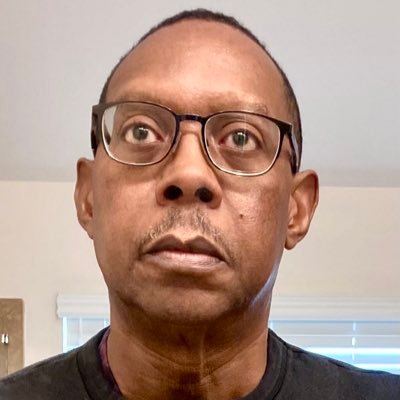 Two days later, the company posted a job opening for the six-member opinion page, where the last African American, Editorial Page Editor Harold Jackson (pictured), left for the Houston Chronicle in 2018 before retiring the next year.
Two days later, the company posted a job opening for the six-member opinion page, where the last African American, Editorial Page Editor Harold Jackson (pictured), left for the Houston Chronicle in 2018 before retiring the next year.
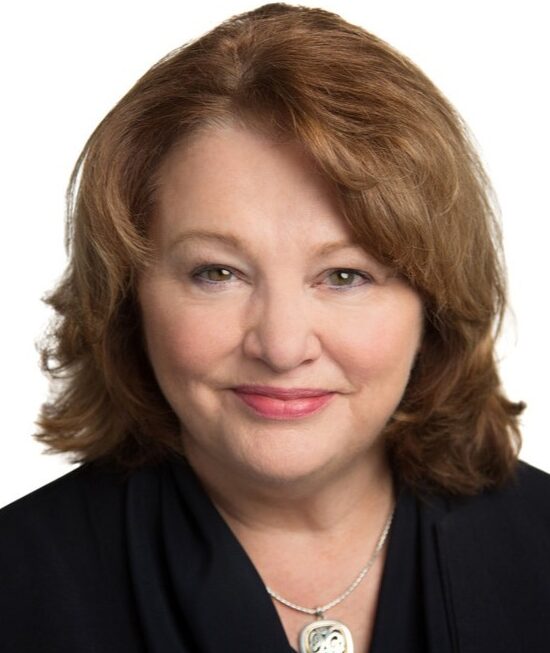 Sandra Shea, managing editor, opinion (pictured), messaged Journal-isms last week, “As you may be aware, the Inquirer as a whole has been engaged in conversation and reflection on ways we can address issues of structural racism in our institutions, including our own.
Sandra Shea, managing editor, opinion (pictured), messaged Journal-isms last week, “As you may be aware, the Inquirer as a whole has been engaged in conversation and reflection on ways we can address issues of structural racism in our institutions, including our own.
“This position is the result of a recognition that our editorial board needs to be more diverse. We’re really grateful that our publisher has recognized this, since like other departments in other news organizations, we’ve been decreasing in size over the. years, not increasing.”
The audit also found an all-white investigations team. However, Editor Gabriel Escobar messaged Journal-isms on Monday, “There is now a journalist of color on the I-team,” Juliana Reyes, “and we are also interviewing candidates for an open position on investigations.
“We are creating a community reporting team for the news side and expect to hire four journalists, including an editor.”
- Peter St. Onge, News & Observer, Charlotte (N.C.) Observer and Raleigh (N.C.) News & Observer: We’re bringing more voices to Editorial Board conversations (Feb. 12)
Des Moines Register reporter Andrea Sahouri livestreamed from the back of a police vehicle to talk about being arrested. (Credit: Des Moines Register)
Protests ‘Most Dangerous Place’ for Journalists
“An Iowa journalist faces trial starting today on charges stemming from her coverage of a protest against racial injustice, a case that prosecutors have pursued despite international condemnation from free press advocates who say she was just doing her job, according to the Associated Press,” William Morris reported Monday for the Des Moines Register.
“The case of Des Moines Register reporter Andrea Sahouri, who was pepper sprayed and arrested while reporting on a clash between protesters and police, will highlight an aggressive response by Iowa authorities against those who organized and attended protests that erupted last summer and occasionally turned violent.”
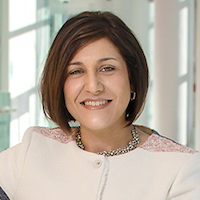 On CNN’s “Reliable Sources” Sunday, host Brian Stelter asked Mirabel Perez Wadsworth (pictured), president of Gannett’s USA Today Network and publisher of USA Today, “Are protests the most dangerous place in America for journalists now?”
On CNN’s “Reliable Sources” Sunday, host Brian Stelter asked Mirabel Perez Wadsworth (pictured), president of Gannett’s USA Today Network and publisher of USA Today, “Are protests the most dangerous place in America for journalists now?”
She replied, “I think they absolutely are. And I think one of the other key stats from the U.S. press freedom tracker is that among those arrested, more than a third are actually assaulted in the process of that arrest. So this is absolutely a significant issue. And one we’re going to have to address.
“You know, the press freedom is one of the, you know, most signature freedoms enshrined in our First Amendment. This is exactly the oxygen that our democracy lives on. And it’s where we hold government to account.
“And so an attack on a journalist like this trying to do her job, trying to report the truth, trying to help people sort fact from misinformation, that’s not an attack on a media company. That’s an attack on the First Amendment. That’s an attack on democracy.”
Also facing charges in court this month over their coverage of protests and rallies in 2020 are Tomas Murawski of the Alamance News in North Carolina, and freelance photojournalist Richard Cummings, the Committee to Protect Journalists reported.
“Rob Wilcox, the Los Angeles city attorney’s community engagement and outreach director, emailed a statement to CPJ saying that the city had declined to file charges against two freelance reporters, Vishal Singh and Sean Beckner-Carmitchel, for allegedly failing to disperse while covering a Black Lives Matter protest in the city on Nov. 4; they said they had not been formally charged with any crime.”
Globally, Journalists Targeted at Record Levels
“Around the world, journalists are being targeted at record levels by despots, eager to silence the press,” Sara Fischer and Ursula Perano reported Thursday for Axios.
“The big picture: Press advocates worry that the damage done during Trump’s presidency to disempower press in America isn’t being reversed quickly enough by President Biden.
“The Biden administration has recently been scrutinized for failing to sanction the Saudi Crown Prince Mohammed Bin Salman, after an intelligence assessment last week concluded that the Saudi prince approved the 2018 operation to ‘capture or kill’ Washington Post reporter Jamal Khashoggi.
” It appears as though under the Biden administration, despots who offer momentarily strategic value to the United States might be given a ‘one free murder’ pass, Washington Post publisher and CEO Fred Ryan wrote Monday.
“The bottom line: Journalists around the world, including in the U.S., have never faced so many threats. Press advocates are looking to the U.S. to provide leadership on the issue.”
- Asian American Journalists Association: AAJA-Asia Calls for Myanmar Authorities to Release Detained Journalists
- Asociación de Periodistas de El Salvador (APES): At least 58 attacks on the press recorded during Salvadoran electoral coverage
- Committee to Protect Journalists: Alerts
- Editorial, Boston Globe: Press freedom is under attack in Latin America. Biden can help defend it
- Dustin Jones, NPR: Journalists Detained For Covering Democracy Demonstrations In Myanmar Face Prison
- Juliet Kigongo, the Daily Monitor, Uganda: Four battered journalists drag government to court
- Paola Nalvarte, LatAm Journalism Review: Global journalism community rallies for press freedom in Nicaragua as government officially takes over independent newsrooms
- Tony Norman, Pittsburgh Post-Gazette: Jamal Khashoggi deserves better than this
ABC News Names New Deputy Political Director
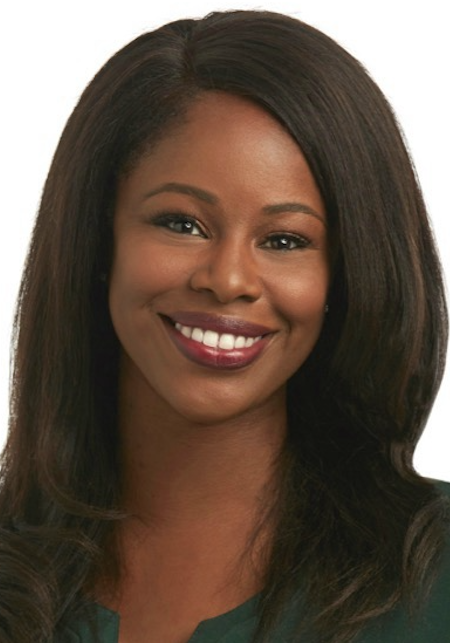 Averi Harper (pictured), a reporter at ABC News, is joining the network’s Political Unit as its new deputy political director, ABC announced Thursday.
Averi Harper (pictured), a reporter at ABC News, is joining the network’s Political Unit as its new deputy political director, ABC announced Thursday.
“Since joining ABC News in 2019, Averi has crisscrossed the country, covering virtually every presidential candidate during the past cycle . . . During the general election, she reported on the Biden/Harris campaign, with a focus on the historic nomination and election of then-Sen. Kamala Harris. Averi was one of a handful of reporters in the room when Harris accepted her nomination at the mostly virtual DNC convention.
“Harper also reported on the racial disparities of the pandemic. “She was part of the team that produced the primetime special, ‘Pandemic: A Nation Divided,’ and she also developed our poll that revealed Black and Latino individuals were three times more likely to know someone who died of COVID-19 than their white counterparts.
“Following George Floyd’s death, Averi reported from Houston for Floyd’s funeral, where she made contact with high school friends of Floyd who became integral to our reporting. Averi also contributed to ABC News’ historic primetime special, ‘Juneteenth: A Celebration of Overcoming.’
“Before joining ABC News, Averi had a successful on-air career, most recently at News 12 in New York. There she hosted and co-produced a magazine show, ‘Diverse Long Island,’ which covered topics such as racial disparities in maternal mortality rates, immigration policy, and land rights for Native American tribes on Long Island’s East End. . . .”
To subscribe at no cost, please send an email to journal-isms+subscribe@groups.io and say who you are.
Facebook users: “Like” “Richard Prince’s Journal-isms” on Facebook.
Follow Richard Prince on Twitter @princeeditor
Richard Prince’s Journal-isms originates from Washington. It began in print before most of us knew what the internet was, and it would like to be referred to as a “column.” Any views expressed in the column are those of the person or organization quoted and not those of any other entity. Send tips, comments and concerns to Richard Prince at journal-isms+owner@
View previous columns (after Feb. 13, 2016).
View previous columns (before Feb. 13, 2016)
- Diversity’s Greatest Hits, 2018 (Jan. 4, 2019)
- Book Notes: Is Taking a Knee Really All That? (Dec. 20, 2018)
- Book Notes: Challenging ’45’ and Proudly Telling the Story (Dec. 18, 2018)
- Book Notes: Get Down With the Legends! (Dec. 11, 2018)
- Journalist Richard Prince w/Joe Madison (Sirius XM, April 18, 2018) (podcast)
- Richard Prince (journalist) (Wikipedia entry)
- February 2018 Podcast: Richard “Dick” Prince on the need for newsroom diversity (Gabriel Greschler, Student Press Law Center, Feb. 26, 2018)
- Diversity’s Greatest Hits, 2017 — Where Will They Take Us in the Year Ahead?
- Book Notes: Best Sellers, Uncovered Treasures, Overlooked History (Dec. 19, 2017)
- An advocate for diversity in the media is still pressing for representation, (Courtland Milloy, Washington Post, Nov. 28, 2017)
- Morgan Global Journalism Review: Journal-isms Journeys On (Aug. 31, 2017)
- Diversity’s Greatest Hits, 2016
- Book Notes: 16 Writers Dish About ‘Chelle,’ the First Lady
- Book Notes: From Coretta to Barack, and in Search of the Godfather
- Journal-isms’ Richard Prince Wants Your Ideas (FishbowlDC, Feb. 26, 2016)
- “JOURNAL-ISMS” IS LATEST TO BEAR BRUNT OF INDUSTRY’S ECONOMIC WOES (Feb. 19, 2016)
- Richard Prince with Charlayne Hunter-Gault,“PBS NewsHour,” “What stagnant diversity means for America’s newsrooms” (Dec. 15, 2015)
- Book Notes: Journalists Follow Their Passions
- Book Notes: Journalists Who Rocked Their World
- Book Notes: Hands Up! Read This!
- Book Notes: New Cosby Bio Looks Like a Best-Seller
- Journo-diversity advocate turns attention to Ezra Klein project (Erik Wemple, Washington Post, March 5, 2014)
.

